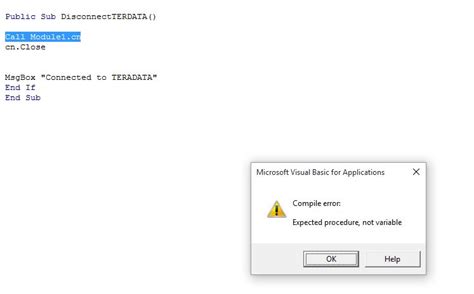Are you struggling with modifying module variables from another module in your Python project? Don’t worry, we’ve got you covered! This article will provide you with tips and tricks on how to efficiently modify module variables in Python from another module.
One useful approach is to use the ‘importlib’ module to manipulate the attributes of a module. This can be done by importing the module that you want to modify as well as ‘importlib’. You can then use the ‘getattr’ and ‘setattr’ functions to access and change the module’s attributes.
Alternatively, you can create a function in the module that contains the variable you wish to modify, and call that function from the other module, passing the new value as an argument. This is a simple yet effective way of modifying module variables without having to deal with the complexities of ‘importlib’.
By using these tips and tricks, you can efficiently modify module variables from another module in Python. So what are you waiting for? Give it a try and see how it can improve your coding experience. Make sure to read this article until the end to learn more about the best ways to modify module variables from another module in Python!
“How To Change A Module Variable From Another Module?” ~ bbaz
Introduction
Python is a popular programming language that offers plenty of modules to make the development process easier. However, modifying module variables from another module in a Python project can be tricky. In this article, we will share tips and tricks on how to efficiently modify module variables in Python from another module.
Using the ‘importlib’ Module
One useful approach to manipulate the attributes of a module is to use the ‘importlib’ module. This can be done by importing the module that you want to modify as well as ‘importlib’. You can then use the ‘getattr()’ and ‘setattr()’ methods to access and change the module’s attributes.
The ‘getattr()’ method returns the value of the named attribute of an object. For example, to retrieve the ‘foo’ attribute from a module named ‘bar’, you can use the following code:
“`import importlib bar = importlib.import_module(‘bar’)foo_value = getattr(bar, ‘foo’)“`
The ‘setattr()’ method sets the value of a named attribute of an object. For example, to set the value of the ‘foo’ attribute in the ‘bar’ module to 123, you can use the following code:
“`import importlib bar = importlib.import_module(‘bar’)setattr(bar, ‘foo’, 123)“`
Creating a Function
Another way to modify module variables is to create a function in the module that contains the variable you wish to modify. You can then call that function from the other module, passing the new value as an argument.
This is a simple yet effective way of modifying module variables without having to deal with the complexities of ‘importlib’. Here is an example:
“`# module1.pydef change_variable(new_value): global variable variable = new_valuevariable = ‘original value’“““# module2.pyimport module1module1.change_variable(‘new value’)print(module1.variable) # ‘new value’“`
Table Comparison
| Method | Advantages | Disadvantages |
|---|---|---|
| ‘importlib’ | Allows direct access to module attributes | Can be complex |
| Creating a function | Simple and easy to use | May not be suitable for all scenarios |
Conclusion
Modifying module variables from another module in Python can be challenging. However, we hope that the tips and tricks shared in this article will help you to do it efficiently. Using the ‘importlib’ module allows direct access to module attributes, while creating a function is a simpler approach. Consider the advantages and disadvantages of each method before deciding which one to use.
Thank you for taking the time to read our article on how to modify module variables from another module in Python. We believe that the information presented here will prove to be useful in your programming endeavors, especially if you’re a Python enthusiast.
We understand that modifying module variables from another module can be a challenging process. However, we hope that this article has provided you with valuable insights and tips that will help you master this technique. Mastering this skill will enable you to create more flexible programs and modules that are easier to maintain and debug.
Remember that practice makes perfect, and the more you apply these concepts in your projects, the better you’ll get. Additionally, don’t hesitate to explore other Python techniques and tools that will make your programming life easier. There’s always something new to learn, and the more diverse your toolkit is, the more capable you’ll be as a programmer.
Here are some common questions that people also ask about modifying module variables from another module using Python:
- What is a module variable in Python?
- Why would I need to modify a module variable from another module?
- How do I modify a module variable from another module?
A module variable is a variable defined within a Python module, which can be accessed and modified by other functions or modules within the same program.
Modifying module variables from another module can be useful in cases where you need to share data between different parts of your program without passing arguments between functions. This can help simplify your code and make it more efficient.
To modify a module variable from another module, you can import the module that contains the variable into your current module, and then modify the variable using dot notation. For example, if you have a module named my_module with a variable named my_var, you could modify it from another module like this:
- Import the module:
import my_module - Modify the variable:
my_module.my_var = new value
Yes, there are some risks involved in modifying module variables from another module, particularly if multiple threads or processes are accessing the same variable at the same time. To avoid these kinds of issues, it’s generally a good idea to use locking mechanisms or other synchronization techniques to ensure that only one thread or process can modify the variable at a time.




